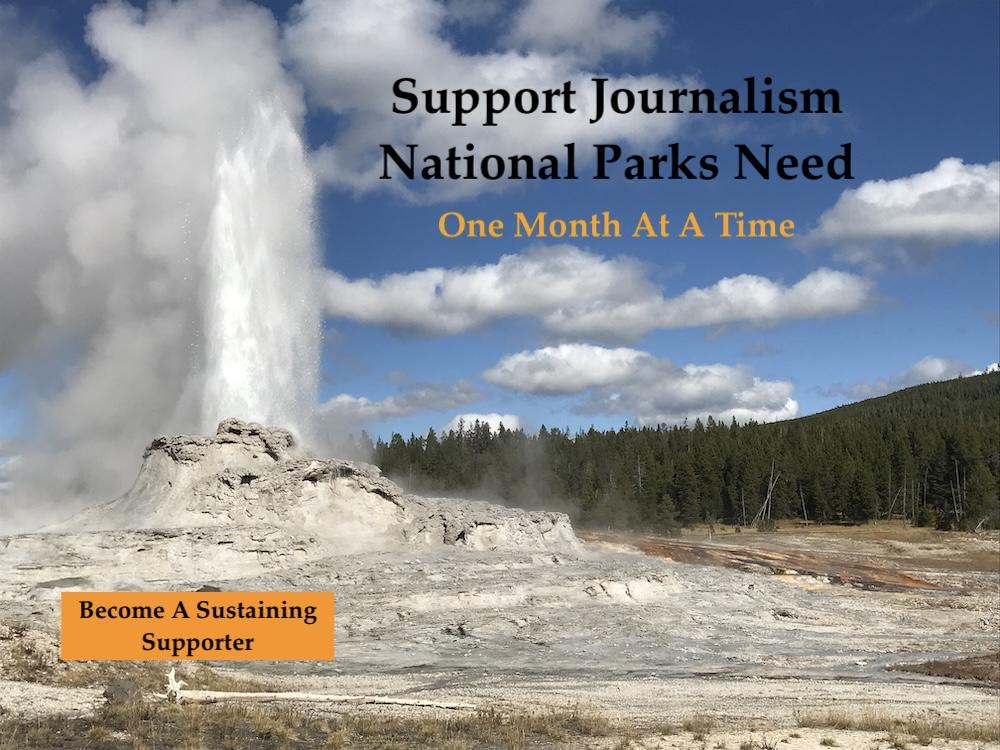Though there's a pile of books on the edge of my desk waiting to be reviewed, Mike O'Connor's book jumped to the top of the heap when it arrived at my door. Outwardly, Why Do Bluebirds Hate Me? is not a book about national parks, but the wisdom the author offers can be carried into the parks.
Plus, he's outrageously funny.
The book, which carries a sub-title of More Answers to Common and Not-So-Common Questions About Birds and Birding, is built from questions he received from readers of his birding columns that appear in the Cape Codder newspaper (so you see, there actually is a connection to the parks via Cape Cod National Seashore!).
Why Do Bluebirds Hate Me? is a handy book (it's new in bookstores this week!) to have around the house. Houseguests will enjoy it, even if they're not into birding. No need to read it cover-to-cover in one sitting. Rather, you can skim through it and pick and choose what interests you.
For instance, if you're heading to one of the Southwest national parks, say Saguaro, you'd be wise to read about the Pyrrhuloxia, which, Mike points out, "is a real bird, not a strange disease."
The question about the Pyrrhuloxia arose from a reader who received a postcard from a friend in Arizona. The front of the card featured some birds, one of which the reader was sure was a cardinal.
"I don't know a lot about birds, but I know what a cardinal looks like. Why did they call it a Pyrrhuloxia. Is that another name for a cardinal?" he wrote to Mike.

The Pyrrhuloxia is a real bird, not a disease! Kurt Repanshek photo.
Mike's response rolled on for almost two-and-a-half pages, mixing humor with a straight-forward answer:
"How did the Pyrrhuloxia end up with such a scary-looking name? And what does Pyrrhuloxia mean? It's all Greek to me. Really, it is Greek. The Pyrrhuloxia's name comes from the combination of two Greek words: "flame," which has to do with the male's red breast, and "crooked," referring to its large beak."
Beyond that, Mike concludes to his inquiring reader, "I also understand why you would question any bird with the name 'Pyrrhuloxia' under it. It sure looks like the worst typo ever or an ointment you might use for a skin rash. But the Pyrrhuloxia is a real bird. It just has a lousy name."
Though the author tosses birding levity about freely, he also knows his stuff, or knows where to look for the answer. When one reader was curious about how ducks managed to swim in lakes and ponds in winter without freezing their feet, Mike discovered that ducks have an interesting blood circulation system:
"...wild ducks have a system of heat exchange, or countercurrent, in which veins and arteries wrap around each other. As the blood flows from a duck's heart, it warms the cold blood returning from the feet. This procedure moderates the incoming blood and keeps the duck's core from becoming chilled and hypothermic. Who knew ducks were so complicated?"
But Mike also couldn't resist a little fun in easing the reader's concerns for ducks in winter. "I'm not saying winter is easy for ducks; it certainly isn't. But they've evolved some effective survival strategies. If you're still worried about your ducks, Julia, invite them in for a cup of coffee, hot chocolate, or even a hot toddy. Just don't offer them a glass of Cold Duck. That would be wrong on so many levels."
Why Do Bluebirds Hate Me? is a wonderful book, whether you bird actively or occasionally, to have around the house. And if you find yourself in Cape Cod any time soon, stop by Mike's store, the Bird Watcher's General Store in Orleans, and ask for an autographed copy and a glass of Cold Duck.

 Support Essential Coverage of Essential Places
Support Essential Coverage of Essential Places






